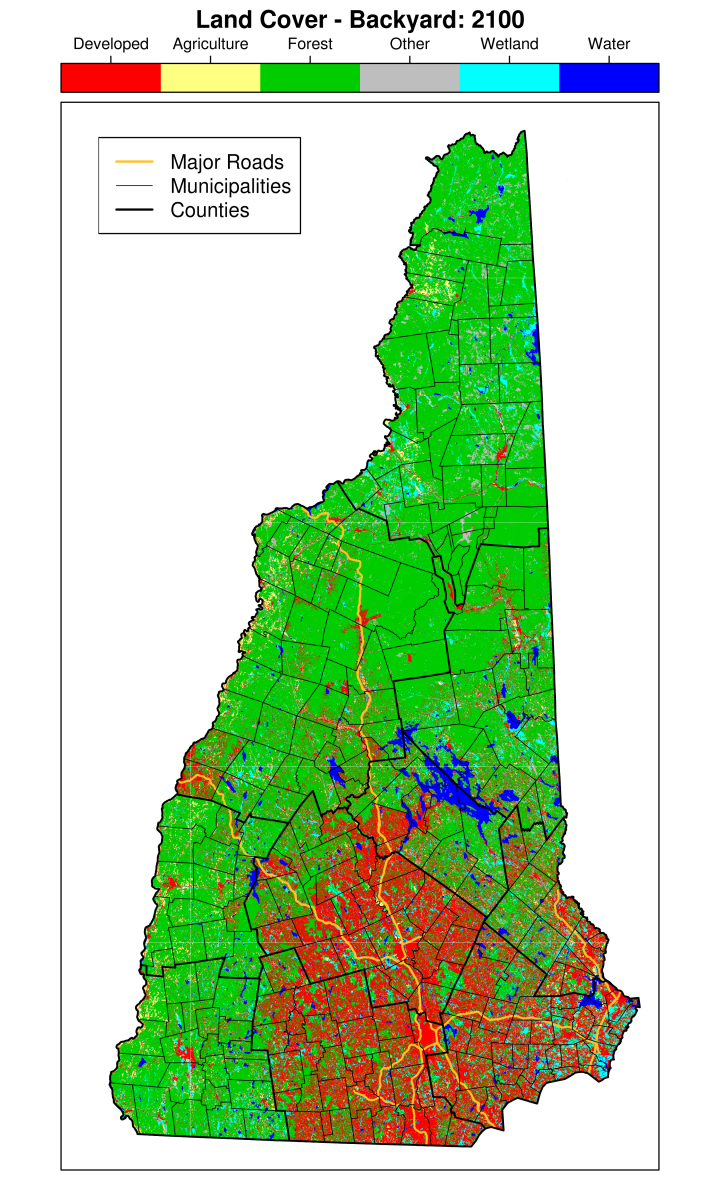
Whether you’re a college student, a member of a town conservation commission, or a high school teacher, if you need to find data on New Hampshire’s environment, visit the NH EPSCoR Data Discovery Center. DDC users include researchers, citizen scientists, decision-makers, STEM educators, and more.
The DDC delivers a suite of data intake, hosting, query, visualization, and analysis tools directly to EPSCoR’s project research teams and also extends the visibility and utility of the project data sets to stakeholders throughout the state and region. The Data Discovery Center (DDC) is a comprehensive data management system designed to accommodate the research, education, and outreach activities of NH EPSCoR’s projects. Current data holdings include atmospheric, aquatic, and terrestrial sensor data, imagery, model results, and survey data generated by the Ecosystems & Society project and the New England Sustainability Consortium.
Data for use by state agencies
Initially developed for the New Hampshire Department of Environmental Services, the DDC programming interface allows users to easily search, filter, and download EPSCoR project data for use within their own applications. It also allows for extensive data management through a series of controls that facilitate arranging and publishing the data.
Data for use by educators
The DDC Education portal provides access to selected EPSCoR datasets for instructional purposes. These datasets depict real world scenarios by describing temperature, precipitation, conductivity, and water level (stage) events around New Hampshire. The scenarios can be used in the classroom to explore these phenomena and their interactions with each other under normal, drought, and hurricane type conditions. Students can download data and see the impact on creek or river levels from a drought or a hurricane.
Questions? Contact mike.routhier@unh.edu.
